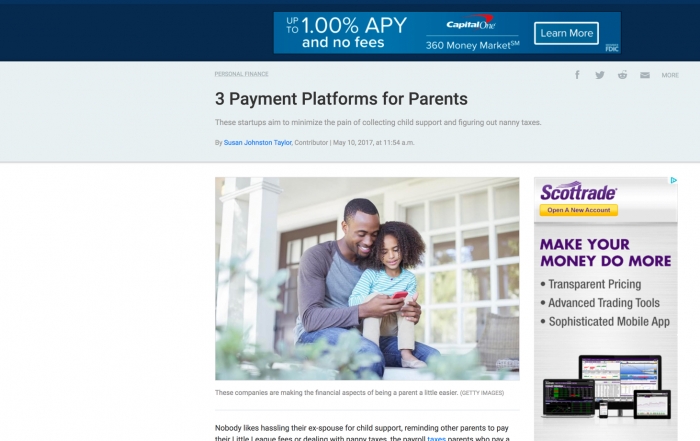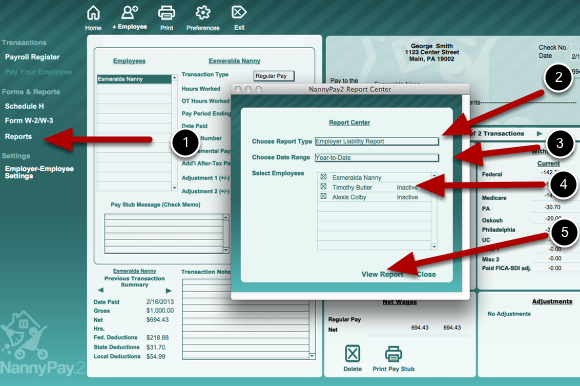

REVIEW NANNYPAY SOFTWARE PROFESSIONAL
A tax professional can help parents maximize their child care tax benefits. Any pre-tax FSA benefits are subtracted from expenses used for the child care credit. An employer-sponsored dependent care FSA allows the parent to save up to $5,000 pre-tax to use toward expenses. The parents also may be eligible to use their dependent care Flexible Spending Account (FSA) to pay their child care expenses. The credit can be worth as much as 35 percent of $3,000 in qualifying expenses for one child or $6,000 for two or more children. Parents who use a nanny for their child care needs may be eligible for the child care tax credit. What are the tax benefits for parents with a nanny? Although they do not have to pay the taxes before the due date of their return, parents may want to increase their own income tax withholding or pay estimated taxes to cover the additional taxes due and avoid potential estimated tax underpayment penalties. Household employers pay the withheld taxes along with their own income taxes due by April 15. What does a household employer do with withheld taxes? In that case, the nanny would need to complete a W-4 to allow the employer to calculate the correct withholding amount. The parents do not have to withhold income tax from their nanny’s pay, but may choose to do so if the nanny asks them to. What income tax requirements do household employers face? However, their wages are normally not subject to Social Security and Medicare taxes. Grandparents or older siblings are considered household employees if they meet the other requirements of a household employee. The taxpayer’s child under 21 or anyone under age 18 (unless they provide household services professionally) is not a household employee. What about grandparents or siblings who work as a paid nanny?

Parents may also need to pay state unemployment taxes.


The federal unemployment tax rate is 6 percent, but many employers get a 5.4 percent credit against the tax. If the parents pay the nanny wages of $1,000 or more in any calendar quarter, they also need to pay federal unemployment tax on the first $7,000 of wages. In either case, the parents are responsible for remitting both their share of the Social Security and Medicare taxes and the nanny’s. Instead of withholding the nanny’s share from the wages, parents may choose to pay the nanny’s share themselves. If parents pay a nanny more than $2,100 wages in 2019, the nanny and the parents each pay 7.65 percent for Social Security and Medicare taxes. Like other employers, parents must pay certain taxes. What employment taxes do household employers pay? These kinds of care providers are generally in-home day care providers and not household employees. Self-employed child care providers provide their own supplies or equipment and offer their services to the public, perhaps for a number of different clients. While most nannies are household employees, some could be self-employed. In that case, each family would be an employer and would pay nanny taxes on the wages it had agreed to pay. It likewise does not matter if the nanny is full-time or part-time or how often they pay the nanny.Įven if a nanny works for more than one family in a “nanny share,” both families typically control the work and how it is done. Even if the parents found their nanny through an agency, they are the nanny’s employer if they have control over the work and pay the nanny directly. Parents have a household employee if they hire a nanny and control what work is done and how it is done. Although new parents may not expect to have responsibilities as an employer added to their responsibilities as parents, understanding nanny tax rules will help them navigate their new roles. They also may need to issue their nanny a W-2 and submit it to the federal government. If they hire a nanny, they may be considered household employers and could be responsible for paying and withholding nanny taxes such as Social Security, Medicare and unemployment taxes. New parents face a lot of surprises when they bring their child home, including a possible surprise from the IRS.


 0 kommentar(er)
0 kommentar(er)
